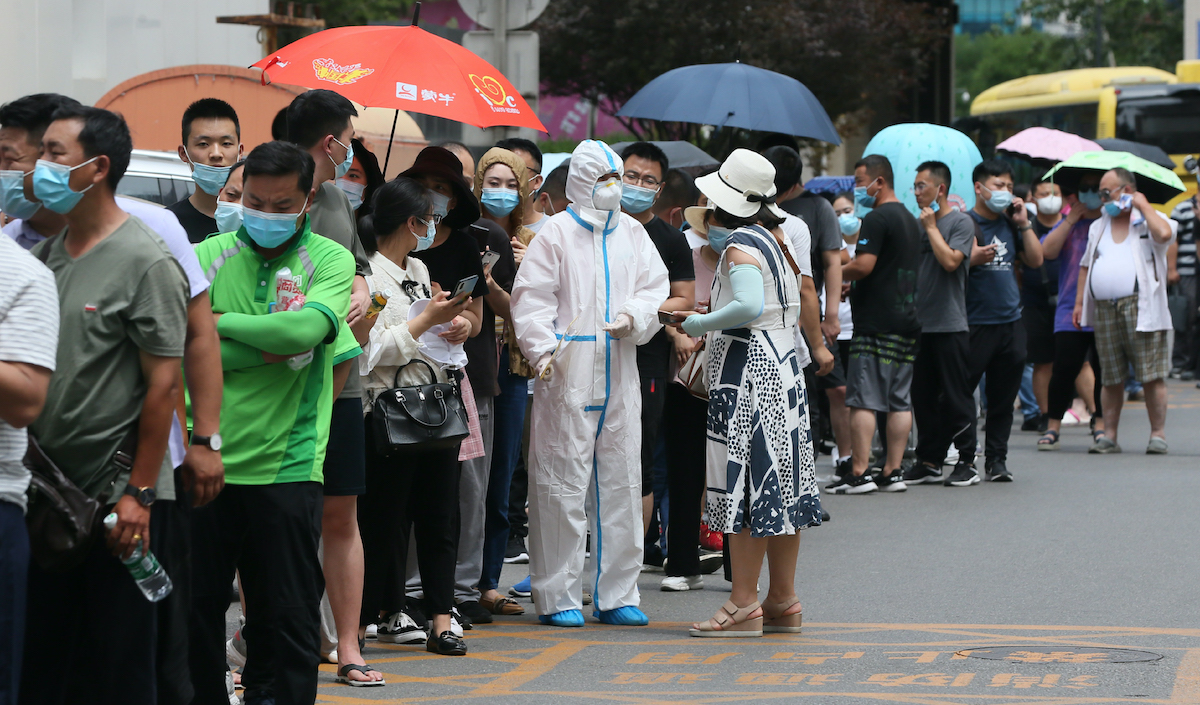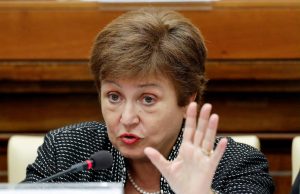(ATF) Hong Kong: Financial markets have turned cautious as investors recalibrate their expectations of an economic rebound as recent data points to a normalisation of activity with little sign of growth.
Asian markets were broadly lower on worries about the second wave of infections still lingering as Germany reported a rise over the weekend and South Korea noting a second wave of infections. China’s infection count was worrying, according to Ting Lu of Nomura.
The price of gold rose 0.2% to $1,747.94 while 10-year US Treasuries yields edged down a basis point to 0.69%.
“Despite a fall in daily new cases over the past few days, Beijing’s new Covid-19 outbreak remains concerning and is spreading to some regions outside of Beijing. Beijing is in effect under lockdown, with a big drop in urban transport activity. Continued Covid-19 risks will likely add further headwinds to the already-weak recovery momentum in the services sector, especially on catering and hotels,” Lu said.
Still, China’s central bank paused and kept the Loan Prime Rate (LPR) for 1Y and 5Y at 3.85% and 4.65%, respectively.
“The decision came in the middle of an increase of Covid-19 cases. Central bank easing may be saved for later. We are looking for a targeted RRR cut this week, by 0.5 percentage points for some banks on the specific requirement to use the liquidity for SMEs,” said Iris Pang, ING Bank’s chief economist for Greater China.
“On a slightly longer time horizon, we expect an upgrade of the innovative re-lending programme with a lower interest rate or in combination with either government guarantees or loan insurance schemes so that SMEs are more willing to borrow and banks are more willing to lend. In short, a rate cut is still possible but may not be in the form of Loan Prime Rates but through the special re-lending programme for SMEs.”
China’s equities benchmark CSI300 eased from morning highs but managed to finish up 0.08%. But Hong Kong’s Hang Seng benchmark underperformed the region falling 0.54% after China released details over the weekend of a proposed national security law that would give the mainland the right to directly prosecute Hong Kong residents.
Meanwhile, Japan’s Nikkei 225 index edged down 0.18% and Australia’s S&P ASX 200 ended 0.03% higher as investors see recent economic improvements as a one-off.
“The intersection of some pent-up demand with easing of lockdown has led to a few market-relieving real economic data points. It would be imprudent to get carried away by this narrative, in our view,” DBS Bank economists said in a report while adding that “months, if not several years” of restriction on mobility and social behaviour lie ahead. And that would “profoundly change” consumer and business behaviour.
PMI updates in US, Europe, Japan and Australia this week will be assessed for the impact from the easing in lockdown restrictions made earlier this month.
Credit markets are watchful amid a wave of new issues hitting the market with the Asia IG index unchanged at 84/85 bps and sovereign CDS wider by 1-2 bps. The primary market pipeline has exploded this morning with bond offerings announced by CLP Power, PLN, Fosun and Minor International in a shorter holiday week. Hong Kong is shut for a local festival holiday on Thursday.
Also on Asia Times Financial:
This week: IMF revisions after deeper Q2 contraction
China’s manufacturing sector sees surging new loans
Taiwanese firms exporting mask ‘micro-factories’
Foreign Exchange:
Asia Stocks
# Japan’s Nikkei 225 edged down 0.18%
# Australia’s S&P ASX 200 added 0.03%
# Hong Kong’s Hang Seng index dropped 0.54%
# China’s CSI300 edged up 0.08%
# The MSCI Asia Pacific index retreated 0.05%.
Stock of the day
Semiconductor Manufacturing International Corp rose as much as 8% after it said its RMB Share Issue under Specific Mandate has been approved by the Listing Committee for the Science and Technology Innovation Board of the Shanghai Stock Exchange.
























